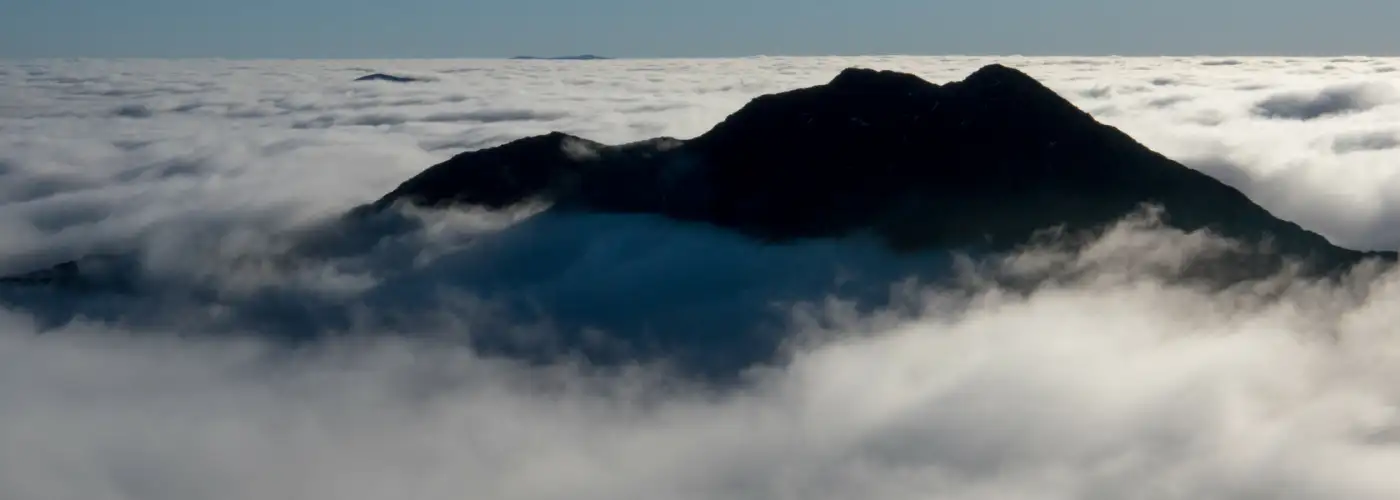The world’s tallest mountain (Everest) is probably out of your reach unless you have mountaineering experience and a cool $50,000 to spare. But you can still summit some pretty impressive peaks around the world with nothing more than willpower and a decent level of fitness.
Famous Mountains That Nearly Anyone Can Summit
Here are nine mountains that most people in reasonable shape can summit—no rock climbing harnesses or ice picks required. (But pack your hiking boots!)
Mount Fuji, Japan
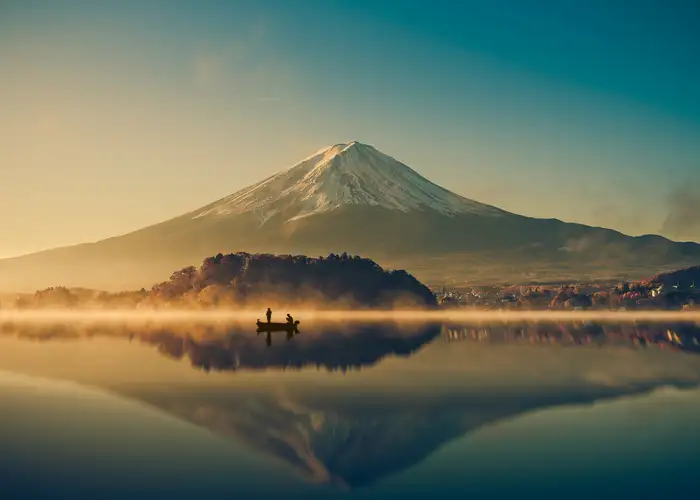
Mount Fuji is a picture-perfect vision of a mountain with a snow-capped standalone peak that’s inspired millions of photographers and artists (and nearly as many hikers). Early July through mid-September is considered the official climbing season due to a lack of snow on the mountain and relatively good weather.
How to Summit Mount Fuji: During the official climbing season, you can take public transportation from Tokyo to the base of the mountain. A climb to the top and back takes most people around 10 hours. The trails are well-marked, so it’s easy to do on your own. If that sounds like too long of a day, you can reserve a mountain hut along the way (also a good strategy if you want to see the sunrise).
Where to Stay: The Fuji Lake Hotel has an outdoor “onsen” (a traditional hot spring bath) with incredible views of Mount Fuji, so you can soak your tired muscles while marveling at the mountain that you just climbed.
Kilimanjaro, Tanzania
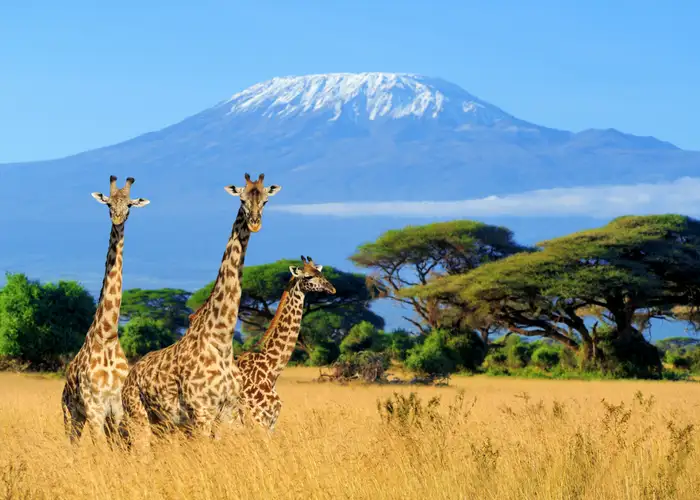
Kilimanjaro is the highest mountain in Africa, so if you’re looking for some serious bragging rights, this is a good summit to aim for. Although the hike is by no means easy (you’ll be contending with breath-stealing high-altitude and grueling days), it doesn’t require any technical knowledge or rock-climbing experience, which makes it one of the most accessible famous mountains—an estimated 30,000 people attempt the summit every year.
How to Summit Kilimanjaro: It might be tempting to take the shortest route up Kilimanjaro, but why not savor the journey on this bucket-list trip? Exodus Travels offers an eight-day hike up the Lemosho Route, which gives you extra time to acclimatize to the altitude (and a better chance at summit success). As an added benefit, you’ll encounter significantly fewer people than on the more crowded Machame Route.
Where to Stay: The Kaliwa lodge is just a few minutes away from Kilimanjaro National Park’s Machame Gate, and makes an ideal-jumping off point for your trek.
Mount Whitney, California
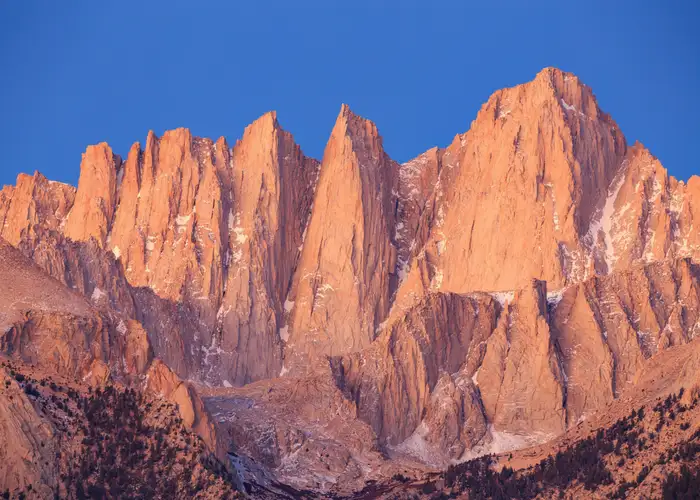
Mount Whitney is the tallest summit in the contiguous United States, standing more than 14,500 feet tall. (America’s highest mountain, Denali, is in Alaska and requires some serious mountaineering skills to climb.) The most popular route, called the Mount Whitney Trail, is 22-miles round-trip. Some people opt to do it in a day, but you can split it into two days by camping. Incomparable views of lakes and the Sierras await you around every switchback.
How to summit Mount Whitney: You will need a permit to hike Mount Whitney. Visit the Forest Service’s Mount Whitney Lottery page to learn more on how to apply.
Where to Stay: The Mount Whitney Motel is a basic accommodation near the trail-head if you don’t plan on camping.
Mount Kosciuszko, Australia
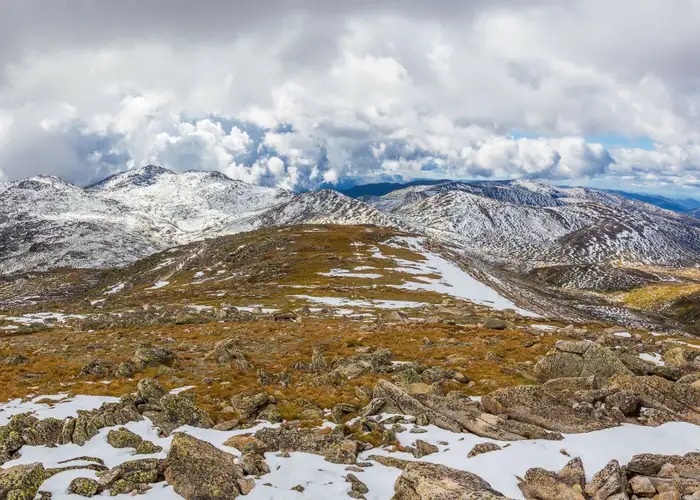
Relatively flat Australia is more known for its deserts than its mountains, and so its highest peak is a fairly easy hike—and your best chance to say you summited the tallest mountain on an entire continent. Mount Kosciuszko stands 7,310 feet above New South Wales and is used as a ski slope in the winter—which means you can take a shortcut and ride the year-round chairlift partway up to make the hike a mere four or five hours round-trip. (If you think that’s cheating, you can take the longer Charlotte Pass summit walk, which takes around seven hours).
How to summit Mount Kosciuszko: The two routes are well signposted and easily accessible from Kosciuszko National Park.
Where to Stay: Rydges Thredbo Alpine Hotel is just a quick walk away from the chairlift.
Mount Toubkal, Morocco
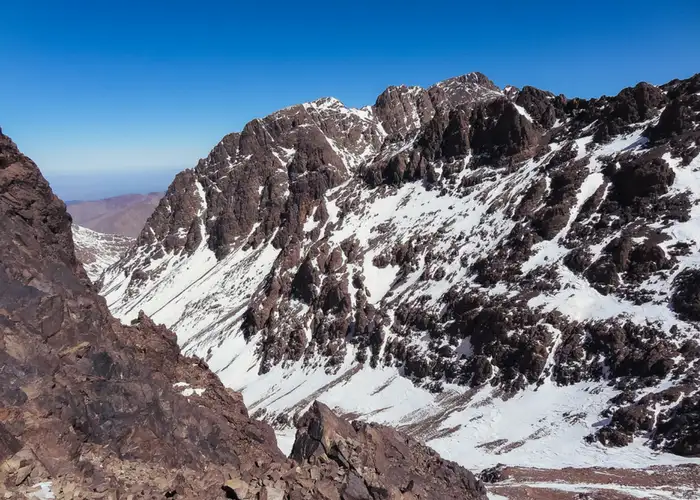
Morocco is an under-the-radar hiking destination, but Mount Toubkal, the country’s highest peak, deserves a spot on any trekking bucket list. You’ll pass through Berber villages and up rocky gorges, all while enjoying unparalleled views of the Atlas Mountains and even the Sahara.
How to Summit Mount Toubkal: Go with a guide (but not a massive tour group). Naya Traveler offers custom multi-day treks up the mountain, which include stays at refuge and mountain lodges so you don’t have to bring a tent
Where to Stay: Stay at nearby Kasbah Illy, which has great valley views and comfortable rooms.
Mount Katahdin, Maine
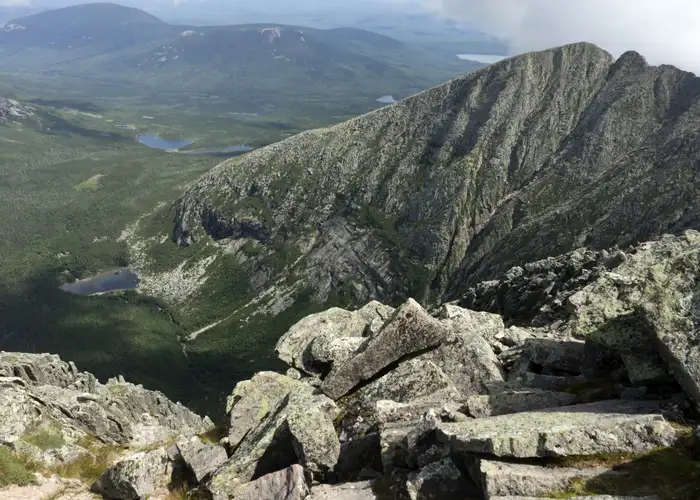
If you want to feel inadequate after hiking eight to 12 hours, tackle Maine’s highest point in September, when you’re likely to be joined at the peak of Mount Katahdin by jubilant thru-hikers for whom this summit represents the end of a 2,200-mile journey: the Appalachian Trail. Those without a fear of heights can opt to hike the aptly named Knife Edge trail for just over a mile along the way. It’s a narrow path with lose rocks and steep drop-offs.
How to Summit Mount Katahdin: There are a number of different trails varying in difficulty and length that you can take you to the top of the mountain from Baxter State Park. No guide or permit is required, but parking can be hard to come by during the summer and early fall.
Where to Stay: Baxter Park Inn has a friendly staff and a fairly close proximity to the trailhead.
Mount Temple, Canada
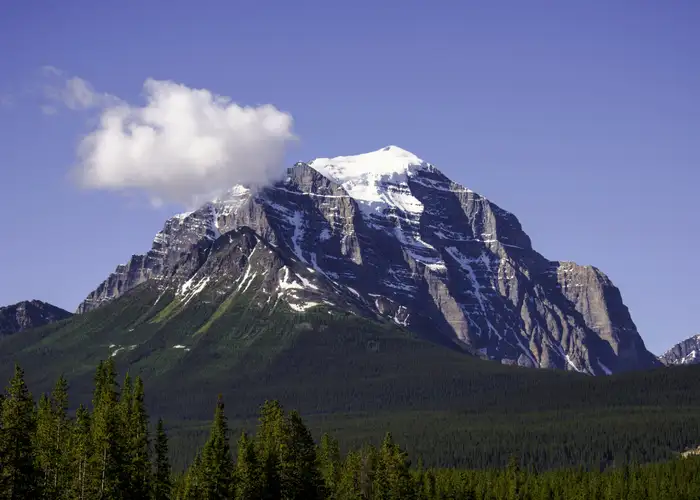
If you’re visiting Banff National Park, it’s impossible to miss the 11,600-foot Mount Temple, which towers over Lake Louise. Be warned that even in July and August, the upper slopes of this behemoth might still be snowy.
How to Summit Mount Temple: The nine-mile out-and-back trail can be completed in a day and draws hundreds of hikers during the summer. Don’t write this off as an easy hike, though. The summit involves a steep and not-well-marked rock scramble.
Where to Stay: Moraine Lake Lodge is a luxury resort near Lake Louise. The lodge is also home to one of Banff National Park’s best restaurants.
Cerro Chirripo, Costa Rica
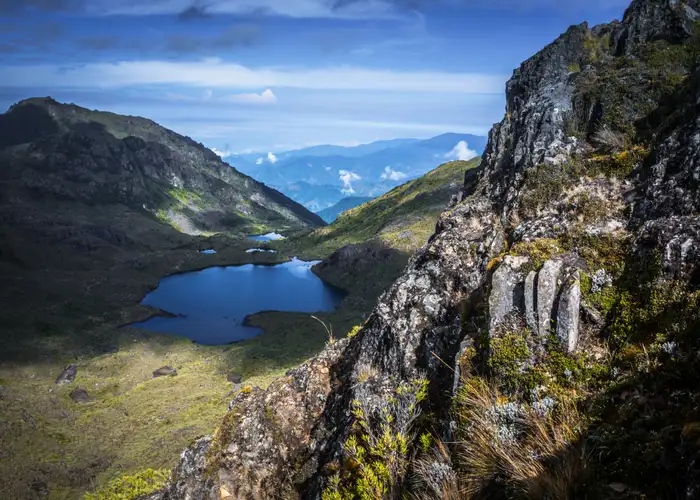
On a clear day, the summit of Cerro Chirripo, Costa Rica’s highest mountain, rewards tired hikers with views of the Atlantic, the Pacific, and Panama. The views aren’t the only diverse part of this climb: The trails wind through distinct ecological zones, taking you from tundra to rainforest. The 12.4-mile trail to the summit can be done in a day if you’re a motivated and strong hiker, or you can spend the night at one of the basic mountain “refugios” (climbers’ huts) along the way. (Reservations are required.)
How to Summit Cerro Chirripo: You must either make a reservation through Chirripo National Park (available online here) or arrive very early in the day to buy one of the walk-up permits, which can sell out quickly, in order to hike.
Where to Stay: La Rosa del Paseo is a quaint local hotel that’s not too far from the park, which is key if you want to try for a walk-up permit.
Mauna Kea, Hawaii
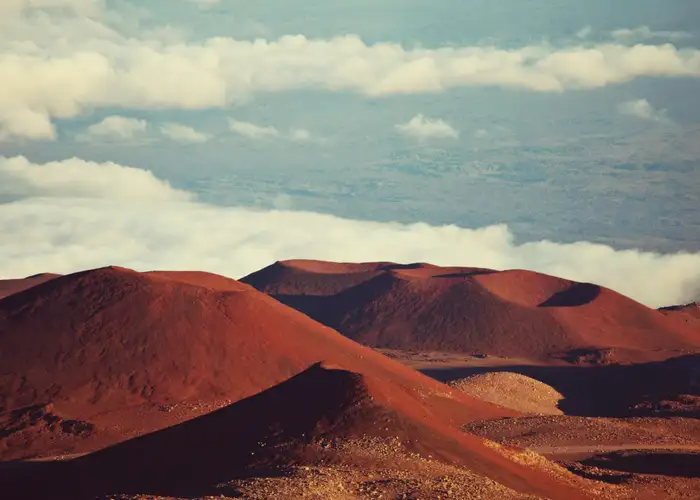
Mauna Kea claims the title of the world’s tallest mountain on a technicality—from base to summit, this inactive volcano is about 33,500 feet. More than half of it is submerged below sea level, though, which is why Everest is the tallest mountain above sea level. So you can technically reach the summit of the world’s tallest mountain in about four hours of hiking, although you won’t be starting from anywhere near the actual base.
How to Summit Mauna Kea: The trail to the summit begins at the Maunakea Visitors Center, and it’s recommended that you register here before beginning your hike. Bring a minimum of one to two gallons of water per person, as Maunakea is in a high altitude and dry desert environment.
Where to Stay: Dolphin Bay is a quiet and inexpensive hotel in Hilo, which is a quick drive to the Maunakea Visitors Center.
Snowdonia, Wales
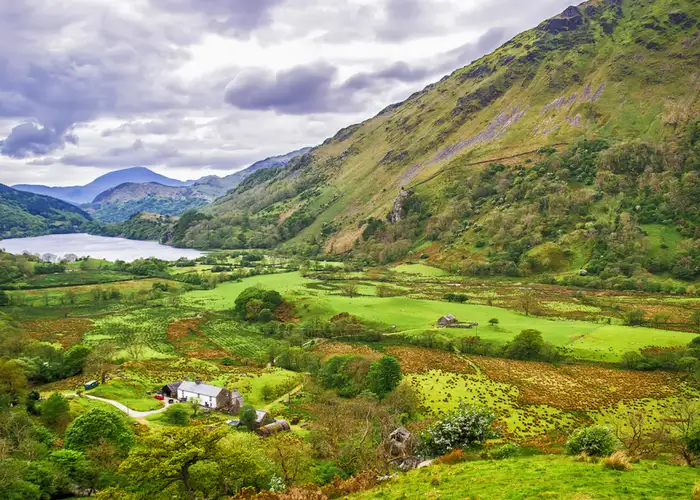
Snowdonia is the highest mountain in Wales and England (just over 3,550 feet). Although the mountain is a huge draw for hikers in the summer, it fortunately has six spread out routes to the top, which means that crowds are dispersed, . Edmund Hillary trained here before he went on to become one of the first climbers to reach the summit of Mount Everest, so you may feel inspired to start saving up for that Everest trip after all…
How to Summit Snowdonia: There’s a shuttle bus that runs around the base, so you don’t have to do a loop hike—you can leave your car at one trailhead and hike down another path instead of going up and down the same trail.
Where to Stay: Continue the Everest theme with a stay at the Pen-y-Gwryd Hotel, which served as the training base for the first successful Everest climbing expedition, and has lots of interesting mountaineering memorabilia on display.
More from SmarterTravel:
- 13 Things You Need to Pack for an Active Vacation
- 7 Reasons Why Anyone Can Hike the Swiss Alps
- Essential Hiking Gear for Travelers
Caroline Morse Teel is slowly working her way through the New England 4,000 footers. Follow her summits on Instagram @TravelWithCaroline.
We hand-pick everything we recommend and select items through testing and reviews. Some products are sent to us free of charge with no incentive to offer a favorable review. We offer our unbiased opinions and do not accept compensation to review products. All items are in stock and prices are accurate at the time of publication. If you buy something through our links, we may earn a commission.
Related
Top Fares From
Today's Top Travel Deals
Brought to you by ShermansTravel
Shop and Save with Country Inns...
Patricia Magaña
 Hotel & Lodging Deals
Hotel & Lodging Deals
$229 -- Chicago: Discounted Rates and...
Francesca Miele
 Hotel & Lodging Deals
$229+
Hotel & Lodging Deals
$229+
$188 -- Honolulu: Save on Oceanview...
Abigail Lamay
 Hotel & Lodging Deals
$188+
Hotel & Lodging Deals
$188+
